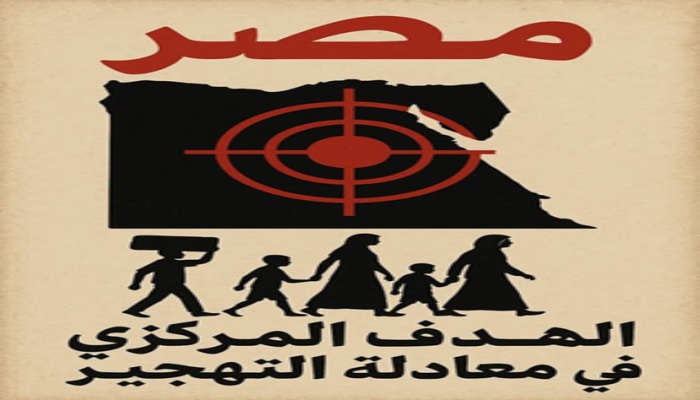
Afrasianet - By Dr. Hisham Okal – Professor of Crisis Management and International Relations - It is no longer a secret that US Secretary of State Marco Rubio's visit to Israel is more than a passing diplomatic meeting. It is a clear signal of a fundamental shift in U.S. policy toward the Palestinian issue beyond the framework of "ensuring Israel's security" or responding to France's campaign to recognize a Palestinian state at the United Nations, to a complete reformulation of the issue itself — from a national issue of a political and legal nature to a manageable and dismantled humanitarian-relief file.
In this context, Gaza is no longer viewed as an occupied territory with a historical and legal right to liberation, but rather as a demolished space that needs to be "managed a crisis" , where the Palestinian is reduced from a citizen who owns land and sovereign rights to a needy individual who is only asked to accept aid and leave. This linguistic transformation is not a formal development, but a deliberate strategic shift: emptying the issue of its political dimension and turning it into a temporary humanitarian problem that can be solved by distributing the population rather than restoring rights.
This shift can be read in light of the simultaneous pressures directed against Egypt, which are not only linked to the Renaissance Dam but are part of a comprehensive pressure system aimed at undermining its strategic capabilities and pushing it to accept a scenario that rearranges the situation in Gaza. Less bad.
"The curse of Palestinian geography "
On the internal Palestinian side, the plan does not seek to achieve a political solution, but rather to radically reshape the internal equation:
Hamas is not just a resistance movement that confronts it by force, but is an existential target: by delegitimizing it and portraying it as the cause of all tragedies, it has been removed from the political scene as an actor and has turned into a "terrorist" that justifies any military action against it.
The Palestinian National Authority, while weak, is not excluded but reintroduced — not as a sovereign authority that negotiates or builds a state, but as a formal administrative façade used to justify foreign interventions and gives a "legitimized" character to displacement and prohibited reconstruction.
But it does not stop at the borders of the West Bank and Gaza. The plan involves the internationalization of the displacement process: there are increasing signs from countries in East Asia and Africa that they are willing to take in numbers of Palestinians, under the guise of "international solidarity" and "collective responsibility," thus dividing the Palestinian people into scattered communities divided between camps in Egypt and Jordan and humanitarian centers in Indonesia or Senegal, all of which are run under humanitarian banners but which erase the essence of national identity and the right to land.
Against this backdrop, Israel and the United States are pursuing a systematic policy of preventing the reconstruction of Gaza: depriving the Gaza Strip of building materials, delaying the restoration of hospitals, and keeping homes demolished not as a result of helplessness or neglect, but as part of psychological and strategic pressure: to make life in Gaza unlivable and to turn the "exit" from the last option to the only option.
"Blind radars"
The Israeli strike on targets in Qatar cannot be separated from this context. This strike, however nuanced it may be, sends a clear message: Even countries that have taken steps toward normalization or play mediation roles will not go unpunished if they break the red lines drawn by Washington and Tel Aviv. The presence of the major U.S. military base in Qatar did not prevent the rockets from falling, which exposes the reality of American protection: it does not protect allies, it only protects Israel. The rest of the allies are tools that can be stopped or sacrificed.
"Strategic Project Interest"
1. Internationalization of displacement and the forcible distribution of Palestinians in Africa and Asia under the guise of "resettlement."
2. Exert pressure on Egypt by using water and economy to recruit Egypt as an indirect partner in dismantling.
3. Turning the Palestinian from a rightful holder into a "humanitarian problem" that can be solved by displacement and not by return.
4. The land is no longer a homeland, but a vacuum that is replanned in the name of "development."
5. Talk of a "full deal": Releasing 48 hostages in exchange for dismantling Hamas is not a compromise... Rather, it is the dismantling of resistance, surrender to displacement and the liquidation of the national project in fullest
A sharp angle asks you say?
Exposing this path is not a matter of solidarity, but a political and moral duty, because if the land is wasted under the cover of relief, the Palestinian people will have nothing left to demand. Except memories.

